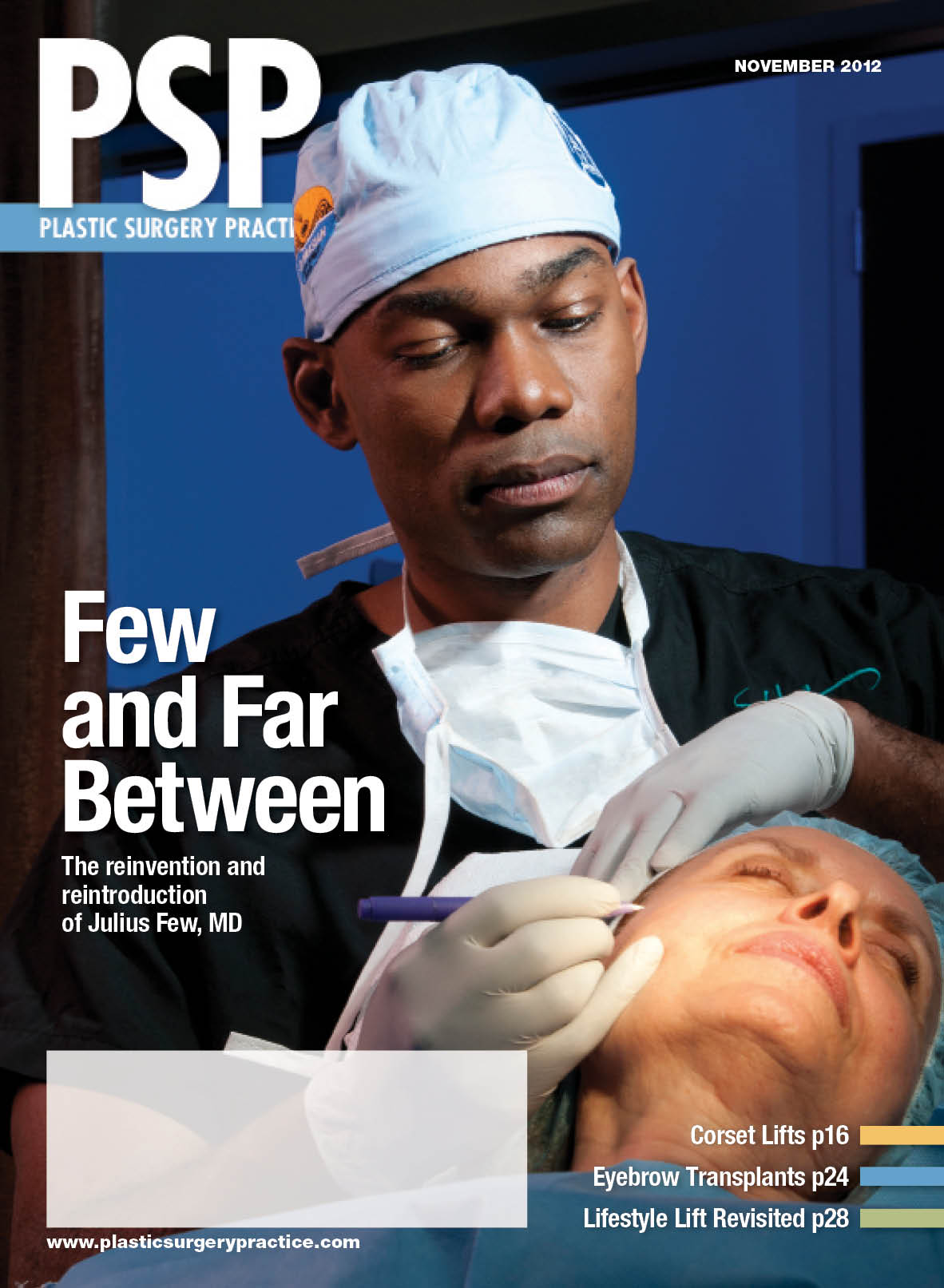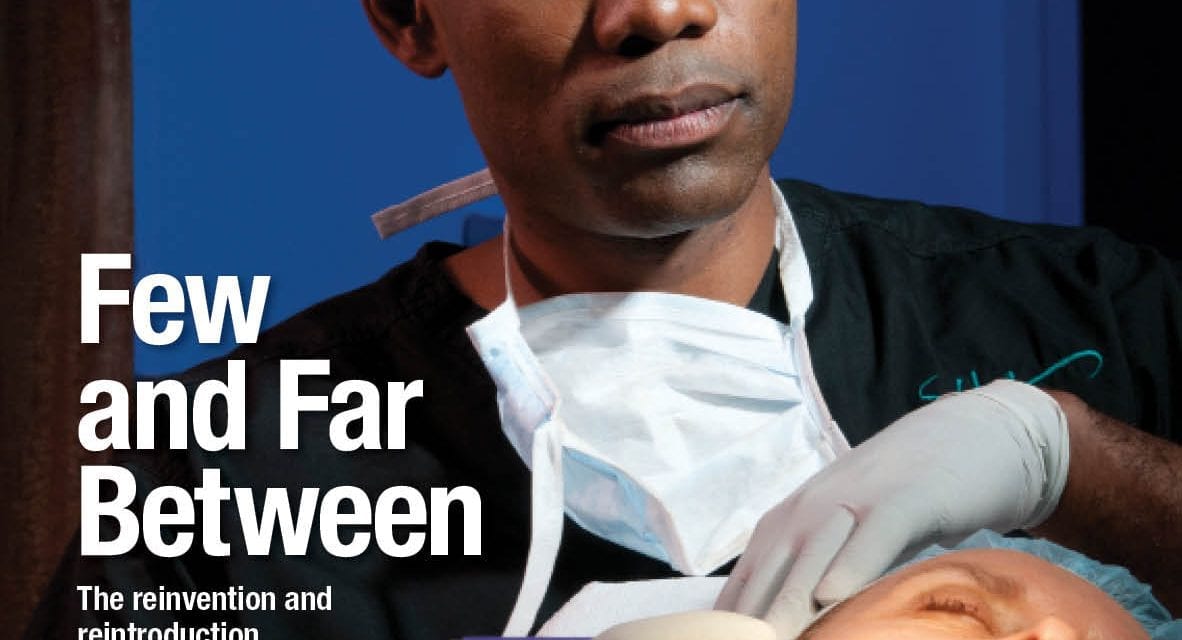Malcolm D. Paul, MD, FACS, re-defends Lifestyle Lift; detractors respond.
Dear editor:
The doctors and employees of Lifestyle Lift (LSL) understand the perspective provided by the group of 
doctors in the November issue of Plastic Surgery Practice. This rhetoric is inaccurate, yet common. Some of these same dissenting surgeons have been invited to observe and learn about what we do in our centers, including our safety protocols, and the nature of our surgery under local anesthesia. They have declined the offer. However, many other open-minded physicians have taken the time to see for themselves what Lifestyle Lift is truly about today, which either gives them the knowledge to compete more effectively or join the company.
To be clear, Lifestyle Lift only recruits surgeons who are Board Eligible or Board Certified in plastic surgery, facial plastic surgery, or ear, nose, and throat, head and neck surgery. Based on a recent survey, Lifestyle Lift surgeons (averaging both full- and part-time physicians) perform an average of more than 230 facelifts a year. These surgeons adamantly disagree with the concerns raised relating to safety, patient care, outcomes, marketing, accreditation, and legal issues outlined in the PSP article. Nonetheless, I want to set the record straight on a few of the points raised by the authors.
For starters, when I characterized the LSL as revolutionary, I was not referring to the procedure(s), but rather to the way they are carried out using oral anesthesia with immediate ambulation and no IVs required.
Level 1 anesthesia does not require accreditation. Moving forward with accreditation is based on our desire to go beyond what is required. Moreover, it’s standard throughout to have consultants see patients and receive commissions based on success. Let’s be honest. Whether it is Lifestyle Lift or an individual surgeon’s corporation, there is emphasis placed on converting consultations to surgeries. LSL surgeons see all patients before surgery. The surgeon decides on the appropriate procedure(s) for each patient. Any concerns are addressed appropriately during scheduled postoperative appointments that are outlined by the physician. I have seen patients that were more than 1 year postop.
I do not believe that the LSL surgeons oversell and underdeliver. Parenthetically, my colleagues in solo practice have had patients who felt they were oversold and underdelivered and asked to be redone, did not want to pay for it, and did not want the original surgeon performing the revision. Lifestyle Lift has now performed more than 165,000 facelifts, and the small percentage of issues should not be used to judge the whole of Lifestyle Lift patients.
Finally, if past Lifestyle Lift physicians have taken shortcuts, that would seem to have been their decision. It is certainly not the company policy that I have observed.
I invite all plastic surgeons and facial plastic surgeons to visit the LSL corporate headquarters in Troy, Michigan, to learn about the Lifestyle Lift. Knowledge is power.
Malcolm D. Paul, MD, FACS
Clinical Professor of Surgery
Aesthetic and Plastic Surgery Institute
University of California, Irvine
Dear editor:
We believe our due diligence has collectively been served by virtue of the numerous former LSL patients we have seen, examined, listened to, and performed surgery on in our practices. Furthermore, more than one of the authors has sought due diligence directly from previous LSL doctors and employees. After residencies, fellowships, board certifications, CMEs, and years spent devoted to facial plastic surgery, we are certain that a visit to Troy, Michigan, will not add substantially to our knowledge base.
A quick comparison on RealSelf shows a 52% satisfaction rate with LSL compared to 88% with facelift. Former LSL patients have sought our help and the help of many facial plastic surgeons and plastic surgeons throughout the country. In addition, they have sought to have their stories heard through Web sites, local and national publications, and numerous local television stations, private attorneys, and through Attorney Generals’ offices.
We would be more interested in seeing real objective (neutral agency) surveys at 24 months on LSL patient satisfaction than the number of cases performed by LSL physicians per year. As Paul knows, volume of surgery is but one component in developing a surgeon’s expertise and not the sole determining factor. Board certification by LSL surgeons has never been contested by this group.
We would appreciate the discontinuation by LSL of the term “revolutionary” in all marketing materials. Paul admits the procedure is not revolutionary. Use of local anesthesia in facial plastic surgery is not revolutionary, nor is the use or absence of IVs considered revolutionary. In point of fact, the very first facelift procedures performed were conducted in similar circumstances. The same is true for many thousands of procedures performed henceforth.
To be clear, the level of anesthesia is determined by state medical boards and is not universal across all 50 states. In Florida, offices and centers that administer oral sedation are now required to register with the state and practice within the boundaries set by the Florida Administrative Code Office Surgery Rules. It would appear that many LSL offices may not be in compliance with these guidelines. And in cases where LSL surgeons are members of the American Society of Plastic Surgeons, there are other safety guidelines that must be adhered to. Any procedures performed in non-accredited facilities are done so in violation of the society’s safety requirements.
|
Read the original articles: |
LSL surgeons do not oversell. It is a sales associate doing the “selling” in the first place. There is nomention of commissions in our article because the relative point was about non-medical personnel making medical decisions. Surgical decisions based on appropriate indications belongs in the hands of surgeons. It is also the responsibility of the surgeon to make sure that the correct expectations have been communicated to the patient. Promoting 1-hour procedures in patients with advanced aging changes must be accompanied by a frank discussion of expectations and probabilities of success.
We would like to invite Paul to help improve the company he has formed an allegiance with because better patient care and patient safety concerns us most.
Anurag Agarwal, MD. Naples, Fla
Daryl Blinski, MD. Miami
Ross Clevens, MD. Melbourne, Fla
Edward Gross, MD. Lake Mary, Fla
Kent Hasen, MD. Naples, Fla
J. David Holcomb, MD. Sarasota, Fla
Brett Moelleken, MD, FACS. Beverly Hills, Calif
Stephen Prendiville, MD. Ft Myers, Fla
Adam Rubinstein, MD. Miami



